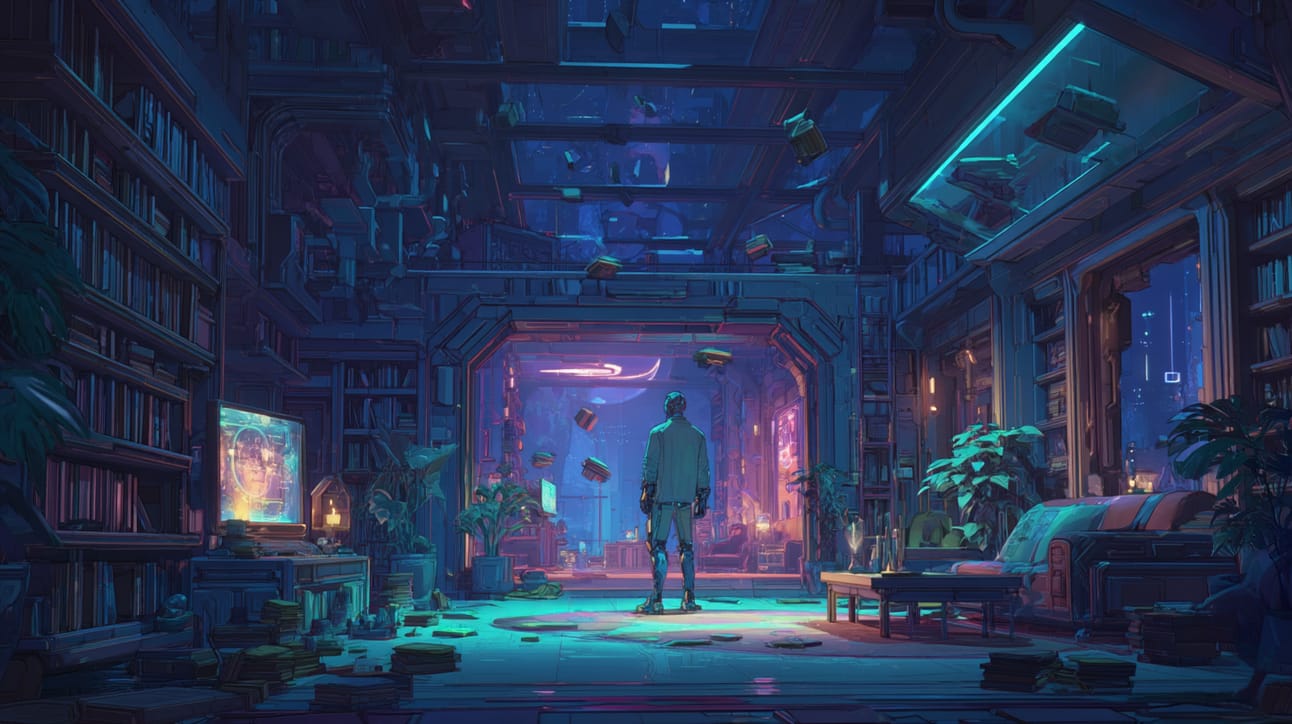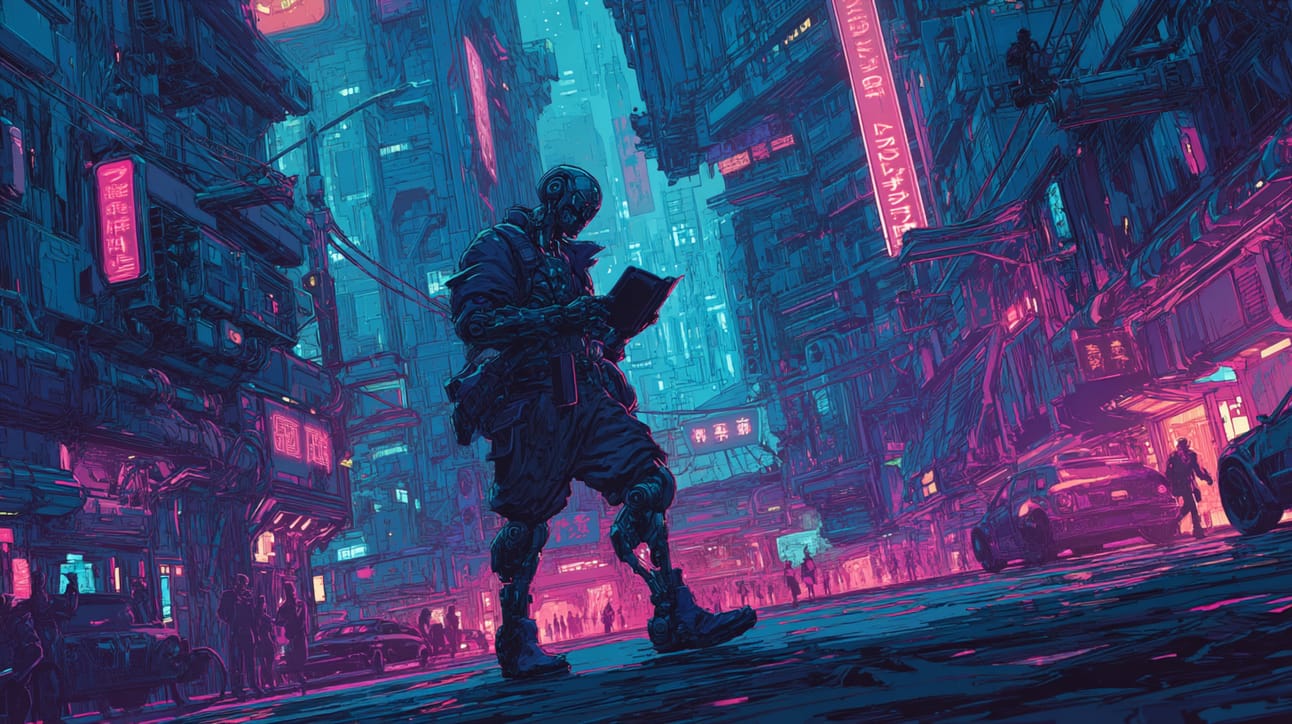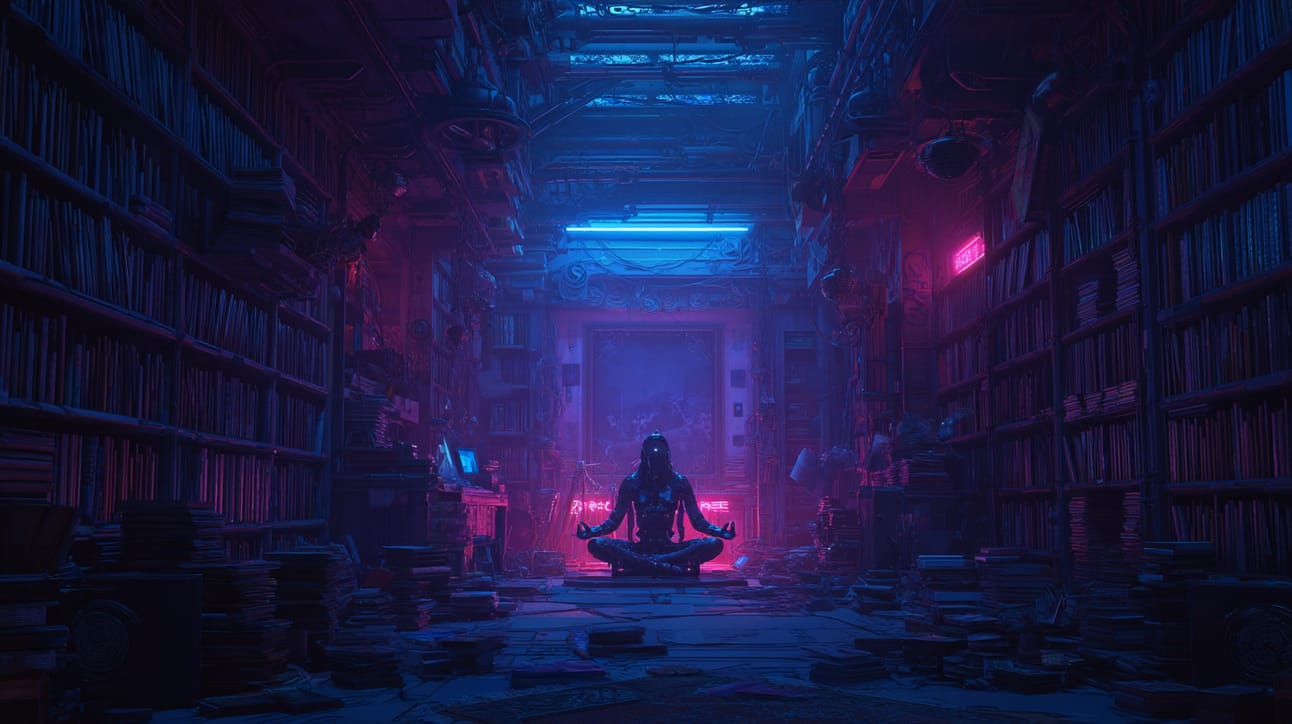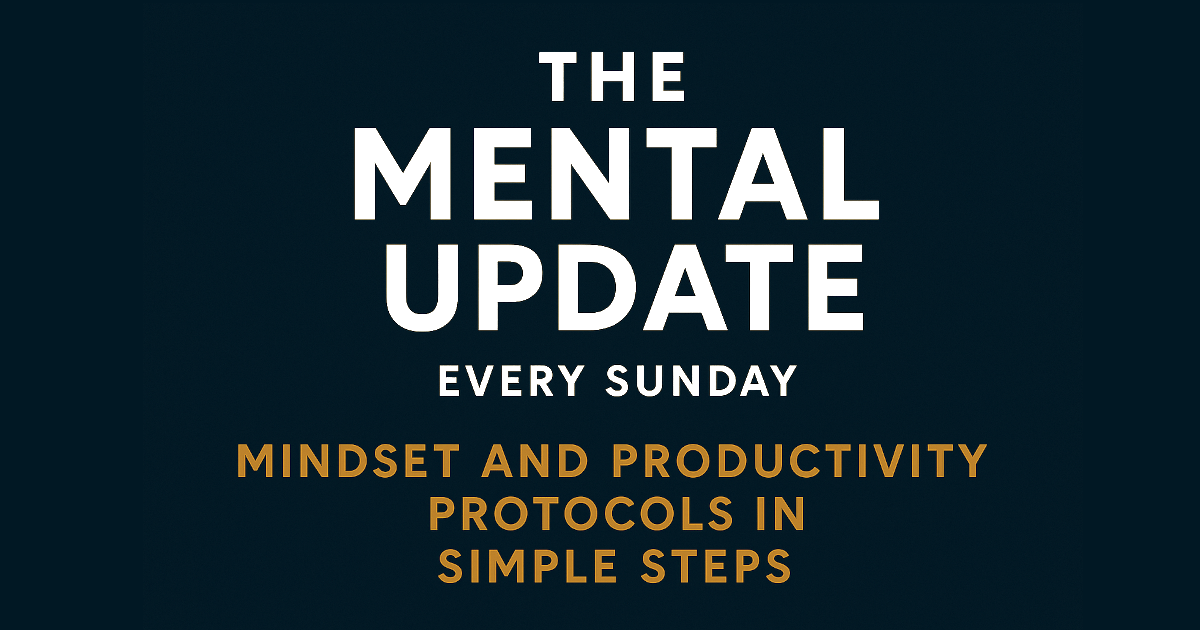- The Mental Update
- Posts
- The Mental Update: The Unseen Art of Reading
The Mental Update: The Unseen Art of Reading
How to actually make reading part of your everyday life
Hey,
This week, I found myself circling a simple but confronting truth:
Change isn’t always loud.
Sometimes it’s barely noticeable, until one day, you realize you’ve shifted.
The posts below explore what happens when growth isn’t about lightning bolts or life-altering moments... but about the quiet repetition that reprograms who you are.
📚 From reading 50 books in a month to redefining what it means to “absorb” knowledge, this week is all about the cumulative kind of transformation. The kind that sneaks up on you, then stays.
What 50 Books in a Month Didn’t Do

I thought reading 50 books in a month would flip a switch in me.
I was ready for the identity shift, the insight that cracks your worldview open, the moment you finally feel “transformed.”
None of that happened.
Instead, something quieter did.
No Fireworks. Just Friction.
It didn’t feel like growth. It felt like repetition.
One good idea after another would land... then disappear. I’d skim pages in the morning, listen to audiobooks on walks, post takeaways in real time. And still, I worried: Am I even absorbing this?
But slowly, something shifted.
Not in my memory, but in my instincts.
I started making different decisions without realizing why.
I approached conversations with more patience.
I noticed recurring patterns I used to miss entirely.
Transformation by Accumulation
Reading didn’t change me in a flash. It wore me down. Shaved off rigid thinking. Rewired reflexes. It reshaped how I perceive, not just what I know.
If you're waiting for the “aha moment” to tell you you've grown, stop.
Growth isn’t loud. It’s cumulative.
Every book adds a grain of weight to one side of the scale. Eventually, it tips.
But only if you stay in the process long enough to let it.
How I Read 50 Books in a Month, And Actually Remembered Them

Reading 50 books in a month sounds impressive.
But here’s the real flex: I actually retained the ideas.
Not because I’m a genius. Because I built a system that worked with my brain, not against it.
The Method: Continuous Reading
I called it continuous reading. Think of it like looping the same song in different formats until the lyrics sink in.
I’d skim ebooks in the morning and evening.
Listen to the same book’s audio at 2x speed during the day.
Then, and this part matters, I’d publish a takeaway immediately.
Not a polished essay. Just a short post distilling the core idea. One book. One insight. One output.
Why This Works
Your brain remembers what it uses. Reading is input. Posting is output. When you’re forced to explain a concept to others, you process it more deeply, and emotionally.
The hybrid format also bypasses fatigue. Reading a book once? Easy to forget. Touching it three times in a day? You’re embedding it.
This wasn’t about speed or volume.
It was about intentional repetition.
Your System > The Ideal One
Don’t copy mine. Build your own. But if you want retention, don’t rely on memory alone.
Skim. Listen. Post. Repeat.
Make the book live in your head, and then put it out into the world.
There’s No Correct Way to Read

At some point, you made reading harder than it needed to be.
You tried to follow the “right” method: finish every book, take detailed notes, read with a highlighter in hand, never abandon halfway.
And then you wondered why it felt like a chore.
Let Go of Reading Dogma
Here’s what changed for me:
I stopped finishing books I didn’t vibe with.
I switched mediums based on my energy: Kindle when focused, audio when walking, physical when unplugged.
I let myself read in bursts. Some days, 2 books. Some days, none.
The result? I read more. And I enjoyed it again.
Obedience Kills Curiosity
Trying to follow “correct” reading rituals is like trying to fall asleep on command. The more you force it, the harder it gets.
Curiosity isn’t obedient. It wanders, skips chapters, re-reads the same page five times. Let it.
What matters isn’t how you read.
It’s that you keep reading.
The Best System Is the One You’ll Sustain
If you only read when the environment is perfect, you won’t read much.
But if you give yourself permission to be messy, inconsistent, and mood-driven, reading becomes part of your life.
Liberate your method.
The books don’t care how you finish them. Only that you do.
Reading as a Lifestyle, Not a Hobby

If you treat reading like a chore, your brain will treat it like one too.
But something strange happens when you stop seeing books as separate from life, and start folding them into it.
Reading stops being a task.
It becomes a lens.
You Start Living Inside the Ideas
Books bleed into your day in small, invisible ways:
A quote shows up in a hard conversation.
A framework shifts how you structure your calendar.
A story helps you see someone with more compassion.
Even if you forget 90% of what you read, the 10% that sticks rewires your instincts.
Reading Isn't Just Something You Do
It's something you become.
You start to default to curiosity. You ask better questions. You tolerate ambiguity. You become the kind of person who digests the world like a book.
And without realizing it, you’re practicing:
Pattern recognition
Mental flexibility
Quiet discernment
Learning Becomes Your Default Mode
You’re no longer reading to learn something specific.
You’re reading because learning is how you move through the world.
That’s the shift.
When reading isn’t boxed into “free time,” it merges with your sense of self.
And once that happens, you’ll never need to force discipline again.
A Personal Reading Philosophy (That Actually Works)

Forget becoming a perfect reader.
Become a fluid one.
Most people try to engineer the “optimal” reading system. They chase retention hacks, bullet journal trackers, and color-coded note apps.
But reading isn’t a performance. It’s a relationship.
Read Like a Human, Not a Robot
Here’s what my philosophy looks like now:
I don’t finish every book.
I re-read what resonates, skip what doesn’t.
I switch mediums, follow energy, and let ideas marinate.
I use books to spark output, not as trophies.
It’s loose. Intuitive. Inconsistent. And it works.
Make It Yours, or You’ll Drop It
Systems are only as good as your ability to sustain them.
If your method only works on your best day, it won’t work for your real life.
Your philosophy doesn’t need to impress anyone. It just needs to keep you in motion.
So define it. Shape it. Own it.
Reading Is a Conversation, Not a Checklist
Every book is a dialogue.
You don’t need to remember every point. You just need to engage, to wrestle with ideas, question what doesn’t fit, post what sticks.
That’s how books change you: not by giving answers, but by sharpening your voice.
Let your reading life be alive. Let it evolve.
And let it be yours.
So, here’s your gentle reminder:
You’re allowed to grow slowly.
To change invisibly.
To evolve without fanfare.
If something feels different, quieter, calmer, more instinctive, it might not be nothing.
It might be working.
Which insight this week left a mark on you? I’d love to hear, just reply.
Until next time,
Daryl
P.S. Want to share this newsletter with a friend? Forward it or send them here:
Also if you found value in The Master Key Made Easy, check out the ebook which gives all 24 lessons in a single convenient medium:
